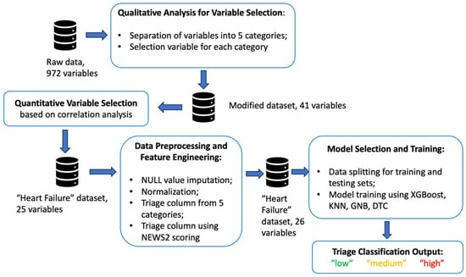Indian J Endocrinol Metab. 2014 Nov-Dec; 18(6): 745–749. doi: 10.4103/2230-8210.141318PMCID: PMC4192976PMID: 25364666Prediabetes and type 2 diabetes mellitus: Evidence for effect of yogaViveka P. JyotsnaAuthor information Copyright and License information PMC DisclaimerINTRODUCTIONThe growing epidemic of lifestyle-related diseases like type 2 diabetes in spite of all new drugs that are now available has drawn attention to the research on effects of yoga in diabetes prevention and treatment.[1,2,3,4,5,6]The word Yoga is derived from the Sanskrit word ‘Yuj’ meaning union of the body, breath and mind. Good health due to Yogic practices could be the effect of right thought and action. Yoga as a way of life is more true to its ancient tenets. It constitutes asanas, regulated breathing (pranayama), and awareness of yoga sutras (principles) that govern the mind.[7] Regular practice of yoga enhances awareness of mind and body,[3] which is needed in the self-management of diet and exercise plan in diabetes.Since change in lifestyle requires more effort on the part of the patient, health care provider and the social system as a whole compared to just popping a pill, more efforts and longer follow-up is required in such research.How does yoga benefit in diabetes? Landmark studies have shown an important role of lifestyle modification in the prevention of type 2 diabetes.[8,9,10,11] How to bring about change in and sustain a healthy lifestyle in times of urbanization, easy availability of calorie-dense fast food, mechanization, less open space for exercise is the question. Mere awareness about healthy living do not alone amount to implementation at the individual and society level.Could practice of yoga be a factor to build awareness and then build this gap between awareness and implementation at an individual level in the choice of food and exercise? Patients with diabetes may be unable or unwilling to participate in conventional types of physical activity (gymnasium based and vigorous strength training) due to limited joint mobility, capsulitis, and physical unfitness associated with overweight and sedentary lifestyle. In such a scenario, gentle yogic stretches performed under guidance with mind, body, and breath awareness might bring the body/mind back in condition fit again for more vigorous exercises required to have a direct effect on lowering plasma glucose. Limitations and barriers in enrollment and follow-up from the previous studies[11] tell us that these stretches and asanas need to be tailored according to the participant's need. Here, we discuss the evidence we have for the different effects of yoga on diabetes.Evidence of effect of yoga on diet, food intake and glycemic controlDiet intake affects glycemic control: A recent study has shown the effect of mindfulness yoga on eating and exercise in gestational diabetes.[12] Community-based yoga intervention showed beneficial effect on oxidative stress,[13] glycemic parameters, weight reduction[14] and lipids.[15]Leptin[16] plays a pro-inflammatory role while adiponectin has anti-inflammatory properties. Leptin was found to be significantly higher among novices compared to regular practitioners of yoga. Frequency of yoga practice had significant negative relationship with leptin.[16] Adiponectin levels were higher among practitioners of yoga. This raised the possibility that long-term/more intensive yoga practice could have beneficial health consequences by altering leptin and adiponectin. Apart from these, there are a number of studies that show the beneficial effect of different methods of yoga on glycemic control and lipid profile in diabetes.[17,18,19,20,21,22] Could yoga be a trigger in self-awareness and awareness for adapting healthy eating habits? Only studies with long-term follow-up can answer this.Evidence of interrelation of depression/anxiety with metabolic syndrome and of yoga to improve bothMood affects food intake: Depression and/or anxiety are risk factors for the development of diabetes[23,24] and vice versa.[25,26] This may occur due to genetic, epigenetic or environmental conditions. Regular practice of yoga has been shown to be beneficial in reducing depression and anxiety[27,28,29,30] and therefore may affect diabetes in an indirect manner.Evidence of effects of yoga in improving physical health, weight loss and adherence to physical activityPhysical activity can lower the risk of type 2 diabetes, but it is difficult to establish whether muscle-strengthening, stretching activities are beneficial for the prevention of type 2 diabetes. Total 99,316 women for 8 years from the Nurses’ Health Study (aged 53-81 years, 2000-2008) and Nurses’ Health Study II (aged 36-55 years, 2001-2009), mainly of European ethnicity, who were free of diabetes, were prospectively followed up. Participants reported weekly time spent on resistance exercise, lower intensity muscular conditioning exercises (yoga, stretching, toning), and aerobic moderate and vigorous physical activity at baseline and in 2004-2005. This is the only long-term follow-up study on yoga and more of this kind is required.This study suggests that engagement in muscle-strengthening and conditioning activities (resistance exercise, yoga, stretching, toning) is associated with a lower risk of type 2 diabetes. Engagement in both aerobic moderate and vigorous physical activity and muscle-strengthening type activity is associated with a substantial reduction in the risk of diabetes in middle-aged and older women.[31]Lifestyle changes though difficult to sustain, prevents type 2 diabetes. A randomized trial with one-year follow-up comparing restorative yoga vs. stretching among underactive adults with the metabolic syndrome at the Universities of California, San Francisco and San Diego showed that restorative yoga was marginally better than stretching for improving fasting glucose.[32]Yoga has been useful in geriatric type 2 diabetes where vigorous exercise may not be acceptable.[33]Though yoga of only 40 days has shown to decrease weight and improve well-being and anxiety[34] in one study, a two-month yoga program was insufficient to bring about a consistent change in physical activity in another study.[35] This stresses the need for a follow-up with revision and reinforcement on a regular long-term basis.Subjective variation of yoga practice limits interpretation. Another factor is the variation of method of yoga being practiced, which varies across studies. Further research is necessary to explore the influence of yoga on behavioral health outcomes among prediabetes and diabetes.A review[36] indicates that yoga has a positive short-term effect on multiple diabetes-related outcomes; however, long-term effects of yoga therapy on diabetes management warrant further research. The context of the social environment, including interpersonal relationships, community characteristics, and discrimination, influences the adoption and maintenance of health behaviors such as physical activity, including yoga practice.Yoga practice of for 3 months was found to be beneficial as weight loss strategy in a predominately Hispanic population.[37]In a randomized controlled study, it was found that participation in a two-month yoga intervention was feasible and resulted in greater weight loss and reduction in waist circumference when compared to controls assigned walking.[38] They concluded that yoga offers a promising lifestyle intervention for decreasing weight-related type 2 diabetes risk factors and potentially increasing psychological well-being.[38]A consensus statement from the British Association of Sports and Exercise recommends that weight training, circuit classes, yoga, and other muscle-strengthening activities offer additional health benefits and may help older adults to maintain physical independence.[39]Evidence of benefit of yoga on cardiovascular riskLong duration practice of yoga has shown to have a beneficial effect on cardiovascular reactivity.[40,41]A randomized controlled trial showed that in a 6-month period, practice of comprehensive yogic breathing had beneficial effects on cardiac autonomic functions in patients with diabetes who followed the comprehensive yogic breathing program compared to those who were on standard therapy alone.[42,43] Since cardiac dysfunction has been implicated in sudden cardiac death in diabetes, this finding may translate to practice of yogic breathing program being useful in delaying sudden cardiac death.A recent review[42] observed that most studies have several limitations like lack of adequate controls, small sample size, inconsistencies in baseline, and different methodologies, therefore large trials with improved methodologies are required to confirm these findings. In view of the existing knowledge and yoga being a cost-effective technique without side effects, it appears appropriate to incorporate yoga/meditation for primary and secondary prevention of cardiovascular disease.[42] A recent meta-analysis revealed evidence of beneficial effects of yoga on cardiovascular risk and concluded that yoga is beneficial for patients with increased risk of cardiovascular disease.[43,44,45]Evidence of benefit of yoga on quality of life/well-beingAny chronic disease like diabetes leads to a decrease in quality of life. Poor quality of life may affect compliance with treatment. A randomized controlled trial has shown that practice of comprehensive yogic breathing program significantly improves physical, psychological, and social domains, and total quality of life.[46] Other studies have also shown increased feeling of well-being with practice of yoga.[11,34,47]Evidence of mechanism of action of yogaApart from the above-discussed mechanisms, other ways by which yoga affects mind-body system have been explored. Sudarshan Kriya yoga and Pranayam program have been found to have a rapid and significantly greater effect on gene expression in peripheral blood mononuclear cells compared with the control regimen, which constituted nature walk and relaxing music.[48] This suggests that yoga and related practices result in rapid gene expression alterations, which may be the basis for their longer-term health effects.Evidence for prevention of prediabetesLifestyle modification is the most effective, cheaper and safer approach to type 2 diabetes prevention.[8,9,10,11]Studies[13,38,49] indicate that a yoga program would be a possible risk reduction option for adults at high risk for type 2 diabetes. In addition, yoga holds promise as an approach to reducing cardiometabolic risk factors and increasing exercise self-efficacy for this group. Among Indians with elevated fasting blood glucose, we found that participation in an 8-week yoga intervention was feasible and resulted in greater weight loss and reduction in waist circumference when compared to a walking control. Yoga offers a promising lifestyle intervention for decreasing weight-related type 2 diabetes risk factors and potentially increasing psychological well-being.Lessons learnt for future researchThe challenges faced in the previous studies have been in recruitment; practical issues for class attendance; physical barriers for engaging in the exercises; motivation issues, inadequate intensity, and/or duration of yoga intervention; and insufficient personalization of exercises to individual needs. Though community-based studies are found feasible, not only in India but abroad as well, these factors should be considered when designing future trials.[50]CONCLUSIONIn a review on prevention of diabetes in developing countries,[51] it was noted that programs adapted to their specific needs are lacking. Low-cost strategies to identify at-risk individuals, followed by the implementation of group-based, inexpensive lifestyle interventions, seem to be the best options. Widespread implementation of type 2 prevention in developing countries will require coordinated efforts throughout society, along with comprehensive government policies and novel funding sources.Yoga is being tried for its benefit not only in India[52] where it is traditionally familiar but in US, UK and Australia as well. In view of the benefits it has shown in short-term studies, long-term studies with support for yoga practice and follow-up are required and this requires a collective effort on the part of the researcher, government, society, and the funding agency.FootnotesSource of Support: Nil Conflict of Interest: None declared.REFERENCES1. Bali HK. Yoga - an ancient solution to a modern epidemic. Ready for prime time? Indian Heart J. 2013;65:132–6. [PMC free article] [PubMed] [Google Scholar]2. Yang K. A review of yoga programs for four leading risk factors of chronic diseases. Evid Based Complement Alternat Med. 2007;2:487–91. [PMC free article] [PubMed] [Google Scholar]3. Zope SA, Zope RA. Sudarshan kriya yoga: Breathing for health. Int J Yoga. 2013;6:4–10. [PMC free article] [PubMed] [Google Scholar]4. Sherman KJ, Innes KE. Yoga for metabolic risk factors: Much ado about nothing or new form of adjunctive care? J Diabetes Complications. 2014;28:253–4. [PubMed] [Google Scholar]5. de G R Hansen E, Innes KE. The benefits of yoga for adults with type 2 diabetes: A review of the evidence and call for a collaborative, integrated research initiative. Int J Yoga Therap. 2013;23:71–83. [PubMed] [Google Scholar]6. Aswathy S, Unnikrishnan AG, Kalra S. Effective management of type 2 DM in India: Looking at low-cost adjunctive therapy. Indian J Endocrinol Metab. 2013;17:149–52. [PMC free article] [PubMed] [Google Scholar]7. 1st ed. Vol. 1. India: Sri Sri Publication Trust; 2011. Patanjali Yog Sutras. A commentary. HH Sri Sri Ravi Shankar. [Google Scholar]8. Echouffo-Tcheugui JB, Dagogo-Jack S. Preventing diabetes mellitus in developing countries. Nat Rev Endocrinol. 2012;8:557–62. [PubMed] [Google Scholar]9. Barrett-Connor E, Fowler SE, Hamman RF, Lachin JM, Walker EA, Nathan DM Diabetes Prevention Program Research Group. Reduction in the incidence of type 2 diabetes with lifestyle intervention or metformin. N Engl J Med. 2002;346:393–403. [PMC free article] [PubMed] [Google Scholar]10. Tuomilehto J, Lindström J, Eriksson JG, Valle TT, Hämäläinen H, Ilanne-Parikka P, et al. Finnish Diabetes Prevention Study Group. Prevention of type 2 diabetes mellitus by changes in lifestyle among subjects with impaired glucose tolerance. N Engl J Med. 2001;344:1343–50. [PubMed] [Google Scholar]11. Ramachandran A, Snehalatha C, Mary S, Mukesh B, Bhaskar AD, Vijay V Indian Diabetes Prevention Programme (IDPP) The Indian Diabetes Prevention Programme shows that lifestyle modification and metformin prevent type 2 diabetes in Asian Indian subjects with impaired glucose tolerance (IDPP-1) Diabetologia. 2006;49:289–97. [PubMed] [Google Scholar]12. Youngwanichsetha S, Phumdoung S, Ingkathawornwong T. The effects of mindfulness eating and yoga exercise on blood sugar levels of pregnant women with gestational diabetes mellitus. Appl Nurs Res. 2014 [PubMed] [Google Scholar]13. Hegde SV, Adhikari P, Shetty S, Manjrekar P, D’Souza V. Effect of community-based yoga intervention on oxidative stress and glycemic parameters in prediabetes: A randomized controlled trial. Complement Ther Med. 2013;21:571–6. [PubMed] [Google Scholar]14. Rioux JG, Ritenbaugh C. Narrative review of yoga intervention clinical trials including weight-related outcomes. Altern Ther Health Med. 2013;19:32–46. [PubMed] [Google Scholar]15. Shantakumari N, Sequeira S, El deeb R. Effects of a yoga intervention on lipid profiles of diabetes patients with dyslipidemia. Indian Heart J. 2013;65:127–31. [PMC free article] [PubMed] [Google Scholar]16. Kiecolt-Glasor JK, Christian LM, Andridge R, Hwang BS, Malarkey WB, Belury MA, et al. Adiponectin, leptin and yoga practice. Physiol Behav. 2012;107:809–13. [PMC free article] [PubMed] [Google Scholar]17. Telles S, Naveen VK, Balkrishna A. Serum leptin, cholesterol and blood glucose levels in diabetics following a yoga and diet change program Comment to: Statins and beta-cell function Lei Qian, Lihong Xu, Yi Lin, Yongde Peng. Med Sci Monit. 2010;16:HY1–2. Med Sci Monit 2010;16:LE4-5. [PubMed] [Google Scholar]18. Amita S, Prabhakar S, Manoj I, Harminder S, Pavan T. Effect of yoga-nidra on blood glucose level in diabetic patients. Indian J Physiol Pharmacol. 2009;53:97–101. [PubMed] [Google Scholar]19. Aljasir B, Bryson M, Al-Shehri B. Yoga Practice for the Management of Type II Diabetes Mellitus in Adults: A systematic review. Evid Based Complement Alternat Med. 2010;7:399–408. [PMC free article] [PubMed] [Google Scholar]20. Singh S, Kyizom T, Singh KP, Tandon OP, Madhu SV. Influence of pranayamas and yoga-asanas on serum insulin, blood glucose and lipid profile in type 2 diabetes. Indian J Clin Biochem. 2008;23:365–8. [PMC free article] [PubMed] [Google Scholar]21. Cohen BE, Chang AA, Grady D, Kanaya AM. Restorative yoga in adults with metabolic syndrome: A randomized, controlled pilot trial. Metab Syndr Relat Disord. 2008;6:223–9. [PMC free article] [PubMed] [Google Scholar]22. Agte VV, Tarwadi K. Sudarshan kriya yoga for treating type 2 diabetes: A preliminary study. Altern Complement Ther. 2004;10:220–2. [Google Scholar]23. Bystritsky A, Danial J, Kronemyer D. Interactions between diabetes and anxiety and depression: Implications for treatment. Endocrinol Metab Clin North Am. 2014;43:269–83. [PubMed] [Google Scholar]24. Ljubicic R, Jakovac H, Bistrović; IL, Franceski T, Mufić; AK, Karlović; D. Prevalence of metabolic syndrome among patients with major depressive disorder--differences between newly diagnosed first episode and recurrent disease. Coll Antropol. 2013;37:1065–9. [PubMed] [Google Scholar]25. Guedes EP, Madeira E, Mafort TT, Madeira M, Moreira RO, Mendonça LM, et al. Body composition and depressive/anxiety symptoms in overweight and obese individuals with metabolic syndrome. Diabetol Metab Syndr. 2013;5:82. [PMC free article] [PubMed] [Google Scholar]26. Ali N, Jyotsna VP, Kumar N, Mani K. Prevalence of depression among type 2 diabetes compared to healthy non diabetic controls. J Assoc Physicians India. 2013;61:619–21. [PubMed] [Google Scholar]27. Khalsa MK, Greiner-Ferris JM, Hofmann SG, Khalsa SB. Yoga-Enhanced Cognitive Behavioural Therapy (Y-CBT) for Anxiety Management: A Pilot Study. Clin Psychol Psychother. 2014 In press. [PMC free article] [PubMed] [Google Scholar]28. Katzman MA, Vermani M, Gerbarg PL, Brown RP, Iorio C, Davis M, et al. A multicomponent yoga-based, breath intervention program as an adjunctive treatment in patients suffering from generalized anxiety disorder with or without comorbidities. Int J Yoga. 2012;5:57–65. [PMC free article] [PubMed] [Google Scholar]29. Brown RP, Gerbarg PL. Sudarshan Kriya Yogic breathing in the treatment of stress, anxiety, and depression. Part II--clinical applications and guidelines. J Altern Complement Med. 2005;11:711–7. [PubMed] [Google Scholar]30. Gangadhar BN, Naveen GH, Rao MG, Thirthalli J, Varambally S. Positive antidepressant effects of generic yoga in depressive out-patients: A comparative study. Indian J Psychiatry. 2013;55(Suppl 3):S369–73. [PMC free article] [PubMed] [Google Scholar]31. Grøntved A, Pan A, Mekary RA, Stampfer M, Willett WC, Manson JE, et al. Muscle-strengthening and conditioning activities and risk of type 2 diabetes: A prospective study in two cohorts of US women. PLos Med. 2014;11:e1001587. [PMC free article] [PubMed] [Google Scholar]32. Kanaya AM, Araneta MR, Pawlowsky SB, Barrett-Connor E, Grady D, Vittinghoff E, et al. Restorative yoga and metabolic risk factors: The Practicing Restorative Yoga vs. Stretching for the Metabolic Syndrome (PRYSMS) randomized trial. J Diabetes Complications. 2014;28:406–12. [PMC free article] [PubMed] [Google Scholar]33. Beena RK, Sreekumaran E. Yogic practice and diabetes mellitus in geriatric patients. Int J Yoga. 2013;6:47–54. [PMC free article] [PubMed] [Google Scholar]34. Kosuri M, Sridhar GR. Yoga practice in diabetes improves physical and psychological outcomes. Metab Syndr Relat Disord. 2009;7:515–7. [PubMed] [Google Scholar]35. Alexander G, Innes KE, Bourguignon C, Bovbjerg VE, Kulbok P, Taylor AG. Patterns of yoga practice and physical activity following a yoga intervention for adults with or at risk for type 2 diabetes. J Phys Act Health. 2012;9:53–61. [PMC free article] [PubMed] [Google Scholar]36. Alexander GK, Taylor AG, Innes KE, Kulbok P, Selfe TK. Contextualizing the effects of yoga therapy on diabetes management: A review of the social determinants of physical activity. Fam Community Health. 2008;31:228–39. [PMC free article] [PubMed] [Google Scholar]37. Benavides S, Caballero J. Ashtanga yoga for children and adolescents for weight management and psychological well being: An uncontrolled open pilot study. Complement Ther Clin Pract. 2009;15:110–4. [PubMed] [Google Scholar]38. McDermott KA, Rao MR, Nagarathna R, Murphy EJ, Burke A, Nagendra RH, et al. A yoga intervention for type 2 diabetes risk reduction: A pilot randomized controlled trial. BMC Complement Altern Med. 2014;14:212. [PMC free article] [PubMed] [Google Scholar]39. O’Donovan G, Blazevich AJ, Boreham C, Cooper AR, Crank H, Ekelund U, et al. The ABC of Physical Activity for Health: A consensus statement from the British Association of Sport and Exercise Sciences. J Sports Sci. 2010;28:573–91. [PubMed] [Google Scholar]40. Veerabhadrappa SG, Baljoshi VS, Khanapure S, Herur A, Patil S, Ankad RB, et al. Effect of yogic bellows on cardiovascular autonomic reactivity. Cardiovasc Dis Res. 2011;2:223–7. [PMC free article] [PubMed] [Google Scholar]41. Chaya MS, Ramakrishnan G, Shastry S, Kishore RP, Nagendra H, Nagarathna R, et al. Insulin sensitivity and cardiac autonomic function in young male practitioners of yoga. Natl Med J India. 2008;21:217–21. [PubMed] [Google Scholar]42. Jyotsna VP, Ambekar S, Singla R, Joshi A, Dhawan A, Kumar N, et al. Cardiac autonomic function in patients with diabetes improves with practice of comprehensive yogic breathing program. Indian J Endocrinol Metab. 2013;17:480–5. [PMC free article] [PubMed] [Google Scholar]43. Jyotsna VP, Dhawan A, Sreenivas V, Deepak KK, Singla R. Completion report: Effect of Comprehensive Yogic Breathing program on type 2 diabetes: A randomized control trial. Indian J Endocrinol Metab. 2014;18:582–4. [PMC free article] [PubMed] [Google Scholar]44. Manchanda SC, Madan K. Yoga and meditation in cardiovascular disease. Clin Res Cardiol. 2014;103:675–80. [PubMed] [Google Scholar]45. Cramer H, Lauche R, Haller H, Steckhan N, Michalsen A, Dobos G. Effects of yoga on cardiovascular disease risk factors: A systematic review and meta-analysis. Int J Cardiol. 2014;173:170–83. [PubMed] [Google Scholar]46. Jyotsna VP, Joshi A, Ambekar S, Kumar N, Dhawan A, Sreenivas V. Comprehensive yogic breathing program improves quality of life in patients with diabetes. Indian J Endocrinol Metab. 2012;16:423–8. [PMC free article] [PubMed] [Google Scholar]47. Sharma R, Gupta N, Bijlani RL. Effect of yoga based lifestyle intervention on subjective well-being. Indian J Physiol Pharmacol. 2008;52:123–31. [PubMed] [Google Scholar]48. Qu S, Olafsrud SM, Meza-Zepeda LA, Saatcioglu F. Rapid gene expression changes in peripheral blood lymphocytes upon practice of a comprehensive yoga program. PLoS One. 2013;8:e61910. [PMC free article] [PubMed] [Google Scholar]49. Yang K, Bernardo LM, Sereika SM, Conroy MB, Balk J, Burke LE. Utilization of 3-month yoga program for adults at high risk for type 2 diabetes: A pilot study. Evid Based Complement Alternat Med 2011. 2011:257891. [PMC free article] [PubMed] [Google Scholar]50. Kjellgren A, Bood SA, Axelsson K, Norlander T, Saatcioglu F. Wellness through a comprehensive yogic breathing program - a controlled pilot trial. BMC Complement Altern Med. 2007;7:43. [PMC free article] [PubMed] [Google Scholar]51. Echouffo-Tcheugui JB, Dagogo-Jack S. Preventing diabetes mellitus in developing countries. Nat Rev Endocrinol. 2012;8:557–62. [PubMed] [Google Scholar]52. Aswathy S, Unnikrishnan AG, Kalra S. Effective management of type 2 DM in India: Looking at low-cost adjunctive therapy. Indian J Endocrinol Metab. 2013;17:149–52. [PMC free article] [PubMed] [Google Scholar]Articles from Indian Journal of Endocrinology and Metabolism are provided here courtesy of Wolters Kluwer -- Medknow Publications

|
Scooped by
Emmanuel Capitaine
onto Digitized Health |
No comment yet.
Sign up to comment





 Your new post is loading...
Your new post is loading...

![FuturHealth Review [Save Up To 40%] Same Day Online Doctor Semaglutide Telemedicine Prescriptions? (Overnight Delivery) – | Digitized Health | Scoop.it](https://img.scoop.it/fLoM-cPCiIhPq3n17dGYATl72eJkfbmt4t8yenImKBVvK0kTmF0xjctABnaLJIm9)
























